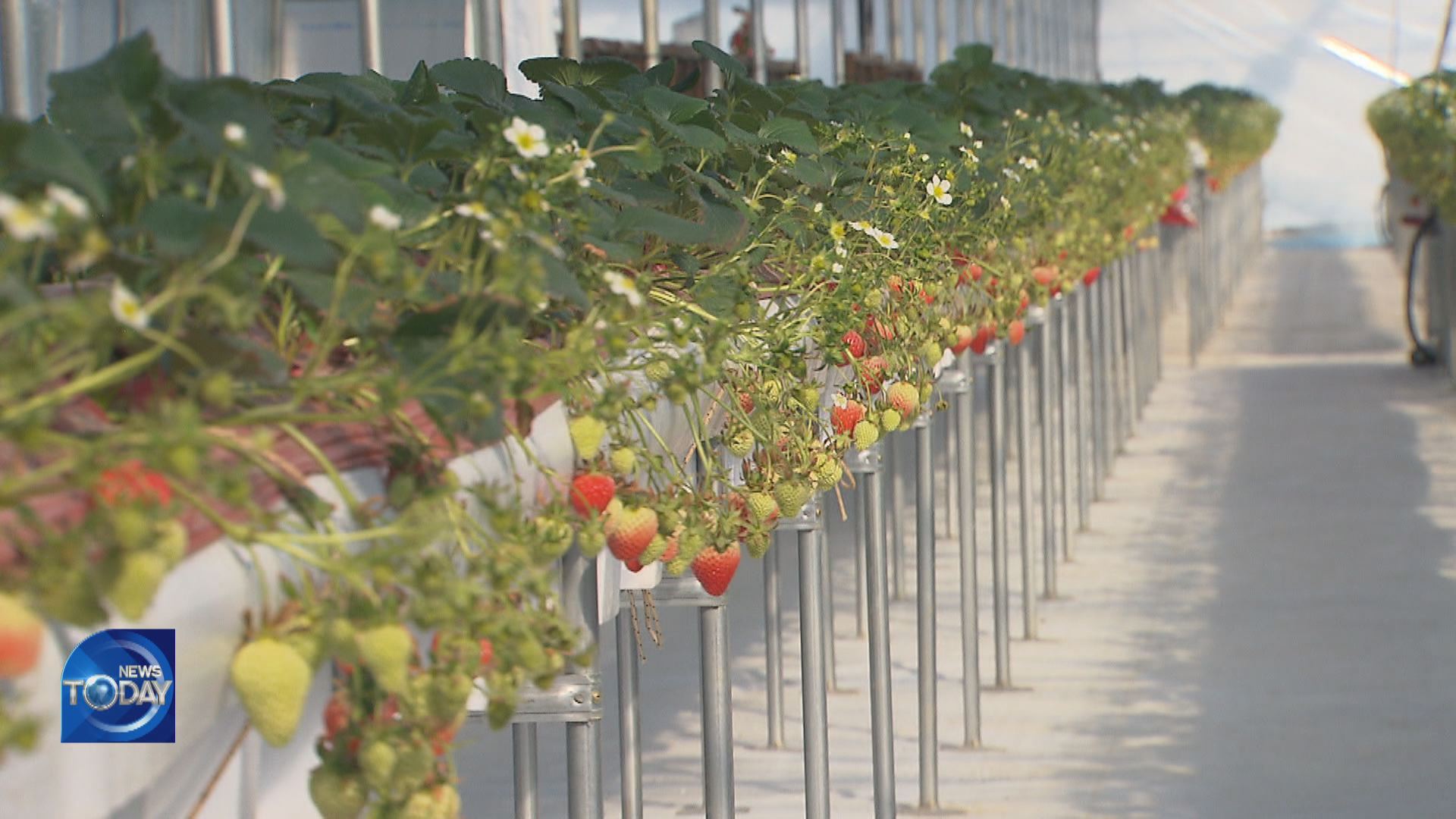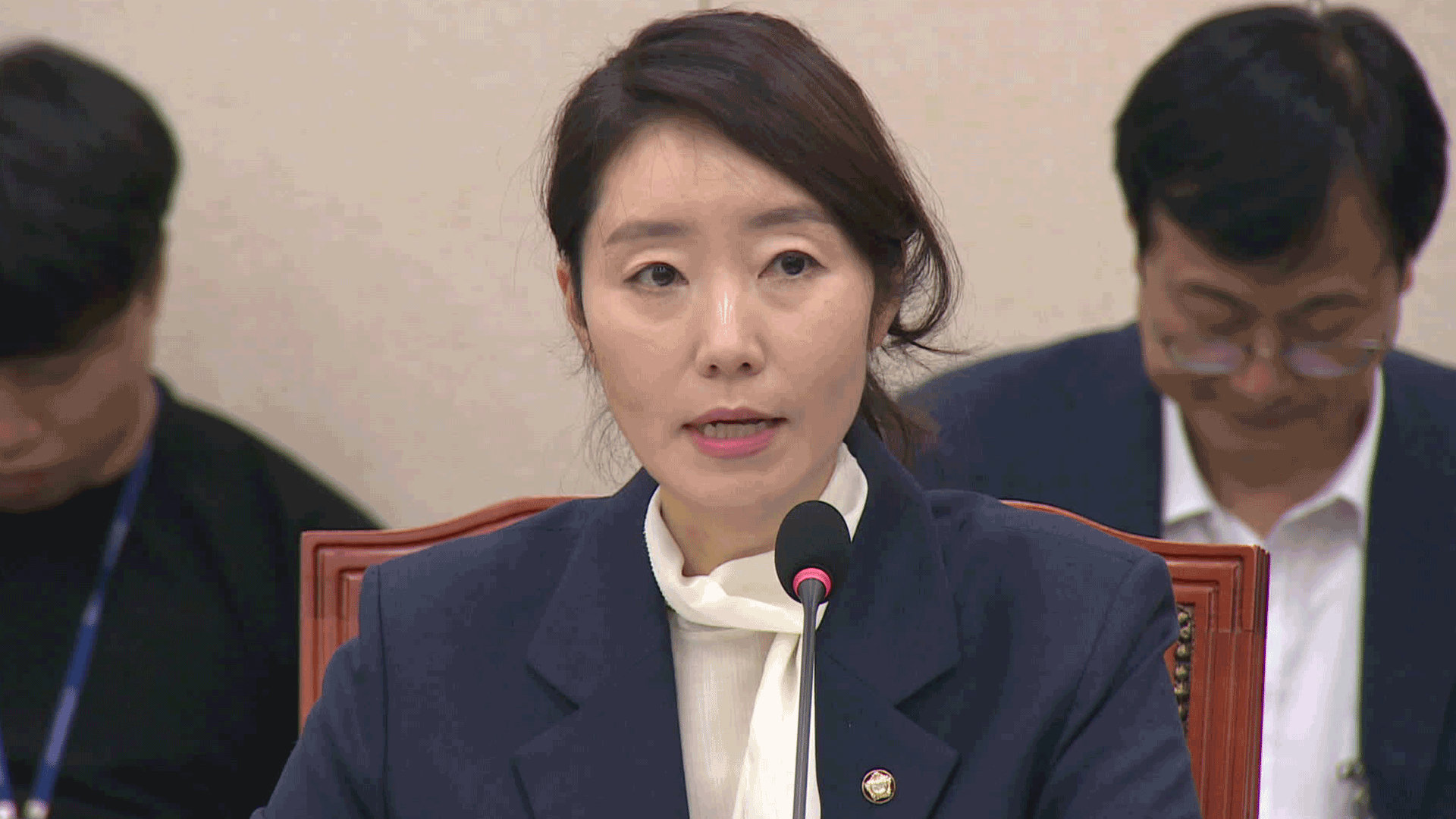HIGHER HEATING BILLS BURDEN FARMERS
입력 2023.02.07 (15:04)
수정 2023.02.07 (16:45)
읽어주기 기능은 크롬기반의
브라우저에서만 사용하실 수 있습니다.
[Anchor Lead]
Now turning to news related to heating bills. The agriculture sector is also feeling the pressure of increased heating bills. This is because electricity and fuel costs have surged as well. Difficulties in running their business can further lead to a surge in consumer prices.
[Pkg]
On strawberry farms, the temperature must be kept at over ten degrees. In winter, electric heaters are operated around the clock. Strawberry farmers were slapped with energy bills of 4.6 million won in January, up nearly one million won from a month earlier.
[Soundbite] Kang Min-hyun(Strawberry farmer) : "Although it is cheaper than household electricity, we pay millions of won in monthly energy bills due to the temperature dropping to minus 20 degrees and heavy snowfall."
To save on heating costs, some farmers spent some one million won to add layers of vinyl to keep their farms warm amid the cold weather. The situation is similar for livestock farmers who use kerosene to heat their facilities. Although they use tax-free kerosene, the fuel's price has jumped nearly 40 percent compared to last winter. Since there is a limit on the amount they can use, the farmers have to buy taxed kerosene if they exceed the maximum.
[Soundbite] Cho Young-wook(Korea Pork Producers Association) : "The burdens have increased significantly. Interest rates, heating bills, feed prices, medication prices and labor costs have all gone up. We cannot handle it."
Farmers' spending on heating and lighting increased 67 percent last year, reaching the highest since related data began to be compiled. Last month, consumer prices for vegetables grown in greenhouses posted the highest increase, as farming facilities require a great deal of heating.
[Soundbite] Kim Won-tae(Korea Rural Economic Institute) : "Heating accounts for over 20% of the cost of growing vegetables in greenhouses. Higher heating bills certainly affect the overall operational costs. It will also lead to a drop in production."
Greenhouse farmers are faced with another burden, as it is uncertain if they can continue to receive government subsidies for heating for January and February.
Now turning to news related to heating bills. The agriculture sector is also feeling the pressure of increased heating bills. This is because electricity and fuel costs have surged as well. Difficulties in running their business can further lead to a surge in consumer prices.
[Pkg]
On strawberry farms, the temperature must be kept at over ten degrees. In winter, electric heaters are operated around the clock. Strawberry farmers were slapped with energy bills of 4.6 million won in January, up nearly one million won from a month earlier.
[Soundbite] Kang Min-hyun(Strawberry farmer) : "Although it is cheaper than household electricity, we pay millions of won in monthly energy bills due to the temperature dropping to minus 20 degrees and heavy snowfall."
To save on heating costs, some farmers spent some one million won to add layers of vinyl to keep their farms warm amid the cold weather. The situation is similar for livestock farmers who use kerosene to heat their facilities. Although they use tax-free kerosene, the fuel's price has jumped nearly 40 percent compared to last winter. Since there is a limit on the amount they can use, the farmers have to buy taxed kerosene if they exceed the maximum.
[Soundbite] Cho Young-wook(Korea Pork Producers Association) : "The burdens have increased significantly. Interest rates, heating bills, feed prices, medication prices and labor costs have all gone up. We cannot handle it."
Farmers' spending on heating and lighting increased 67 percent last year, reaching the highest since related data began to be compiled. Last month, consumer prices for vegetables grown in greenhouses posted the highest increase, as farming facilities require a great deal of heating.
[Soundbite] Kim Won-tae(Korea Rural Economic Institute) : "Heating accounts for over 20% of the cost of growing vegetables in greenhouses. Higher heating bills certainly affect the overall operational costs. It will also lead to a drop in production."
Greenhouse farmers are faced with another burden, as it is uncertain if they can continue to receive government subsidies for heating for January and February.
■ 제보하기
▷ 카카오톡 : 'KBS제보' 검색, 채널 추가
▷ 전화 : 02-781-1234, 4444
▷ 이메일 : kbs1234@kbs.co.kr
▷ 유튜브, 네이버, 카카오에서도 KBS뉴스를 구독해주세요!
- HIGHER HEATING BILLS BURDEN FARMERS
-
- 입력 2023-02-07 15:04:35
- 수정2023-02-07 16:45:46

[Anchor Lead]
Now turning to news related to heating bills. The agriculture sector is also feeling the pressure of increased heating bills. This is because electricity and fuel costs have surged as well. Difficulties in running their business can further lead to a surge in consumer prices.
[Pkg]
On strawberry farms, the temperature must be kept at over ten degrees. In winter, electric heaters are operated around the clock. Strawberry farmers were slapped with energy bills of 4.6 million won in January, up nearly one million won from a month earlier.
[Soundbite] Kang Min-hyun(Strawberry farmer) : "Although it is cheaper than household electricity, we pay millions of won in monthly energy bills due to the temperature dropping to minus 20 degrees and heavy snowfall."
To save on heating costs, some farmers spent some one million won to add layers of vinyl to keep their farms warm amid the cold weather. The situation is similar for livestock farmers who use kerosene to heat their facilities. Although they use tax-free kerosene, the fuel's price has jumped nearly 40 percent compared to last winter. Since there is a limit on the amount they can use, the farmers have to buy taxed kerosene if they exceed the maximum.
[Soundbite] Cho Young-wook(Korea Pork Producers Association) : "The burdens have increased significantly. Interest rates, heating bills, feed prices, medication prices and labor costs have all gone up. We cannot handle it."
Farmers' spending on heating and lighting increased 67 percent last year, reaching the highest since related data began to be compiled. Last month, consumer prices for vegetables grown in greenhouses posted the highest increase, as farming facilities require a great deal of heating.
[Soundbite] Kim Won-tae(Korea Rural Economic Institute) : "Heating accounts for over 20% of the cost of growing vegetables in greenhouses. Higher heating bills certainly affect the overall operational costs. It will also lead to a drop in production."
Greenhouse farmers are faced with another burden, as it is uncertain if they can continue to receive government subsidies for heating for January and February.
Now turning to news related to heating bills. The agriculture sector is also feeling the pressure of increased heating bills. This is because electricity and fuel costs have surged as well. Difficulties in running their business can further lead to a surge in consumer prices.
[Pkg]
On strawberry farms, the temperature must be kept at over ten degrees. In winter, electric heaters are operated around the clock. Strawberry farmers were slapped with energy bills of 4.6 million won in January, up nearly one million won from a month earlier.
[Soundbite] Kang Min-hyun(Strawberry farmer) : "Although it is cheaper than household electricity, we pay millions of won in monthly energy bills due to the temperature dropping to minus 20 degrees and heavy snowfall."
To save on heating costs, some farmers spent some one million won to add layers of vinyl to keep their farms warm amid the cold weather. The situation is similar for livestock farmers who use kerosene to heat their facilities. Although they use tax-free kerosene, the fuel's price has jumped nearly 40 percent compared to last winter. Since there is a limit on the amount they can use, the farmers have to buy taxed kerosene if they exceed the maximum.
[Soundbite] Cho Young-wook(Korea Pork Producers Association) : "The burdens have increased significantly. Interest rates, heating bills, feed prices, medication prices and labor costs have all gone up. We cannot handle it."
Farmers' spending on heating and lighting increased 67 percent last year, reaching the highest since related data began to be compiled. Last month, consumer prices for vegetables grown in greenhouses posted the highest increase, as farming facilities require a great deal of heating.
[Soundbite] Kim Won-tae(Korea Rural Economic Institute) : "Heating accounts for over 20% of the cost of growing vegetables in greenhouses. Higher heating bills certainly affect the overall operational costs. It will also lead to a drop in production."
Greenhouse farmers are faced with another burden, as it is uncertain if they can continue to receive government subsidies for heating for January and February.
이 기사가 좋으셨다면
-
좋아요
0
-
응원해요
0
-
후속 원해요
0

















이 기사에 대한 의견을 남겨주세요.